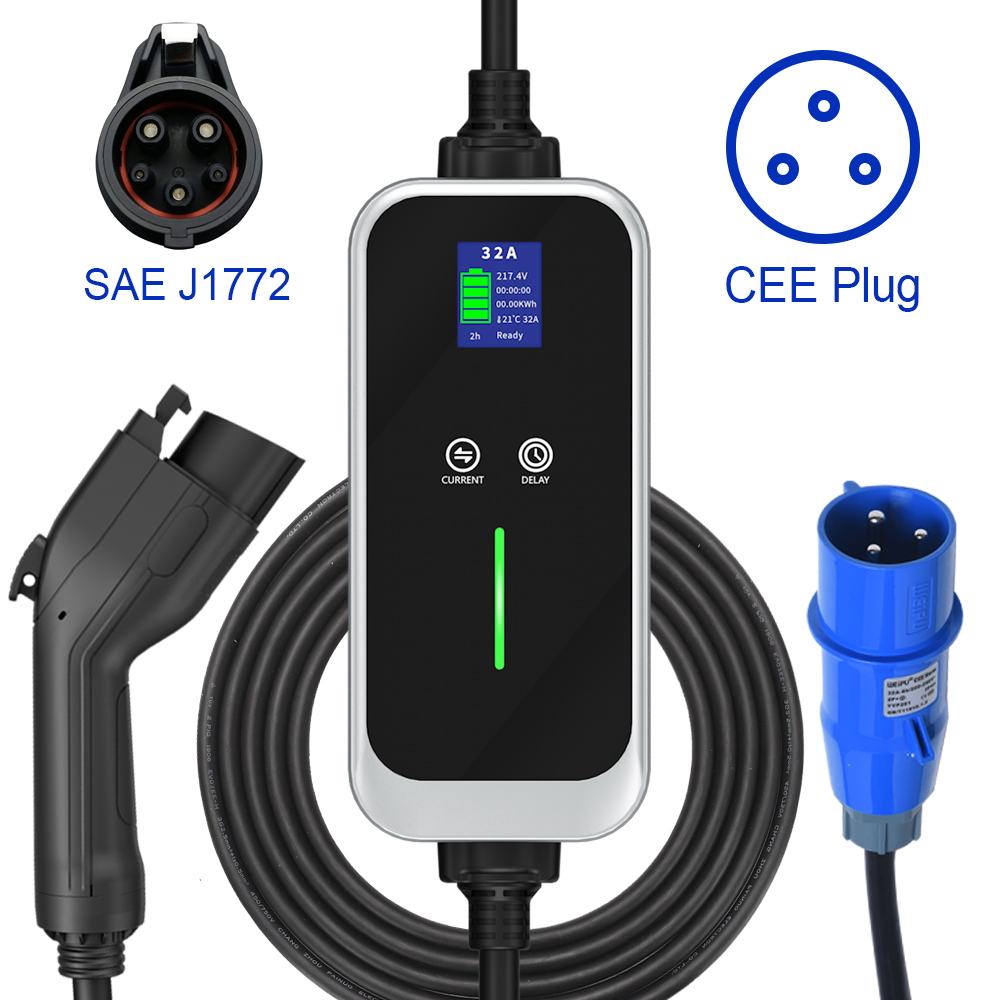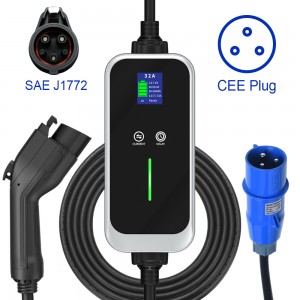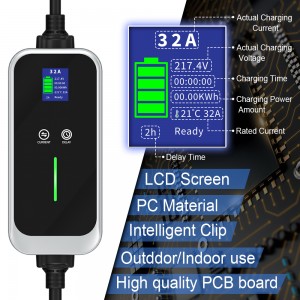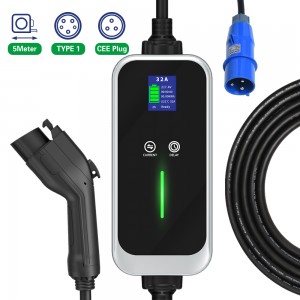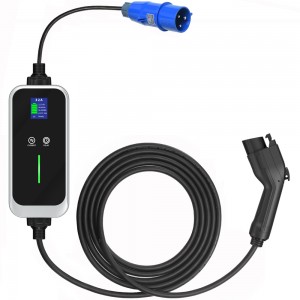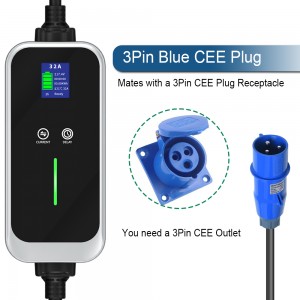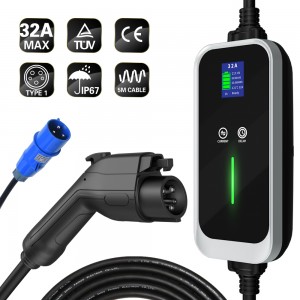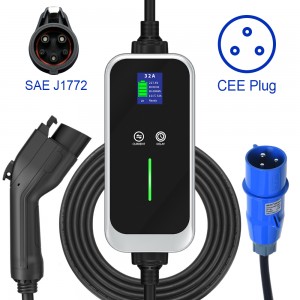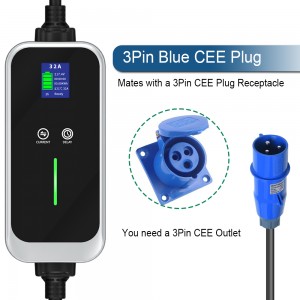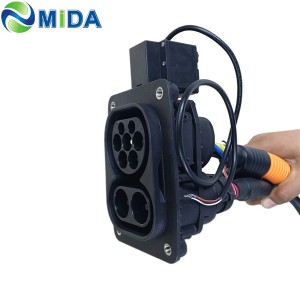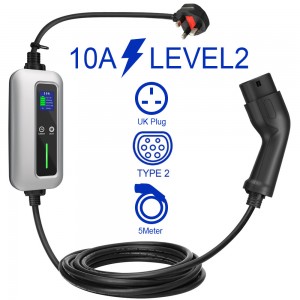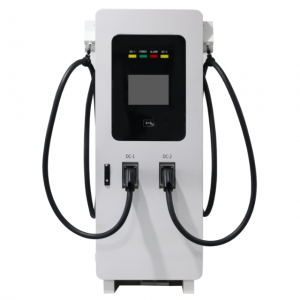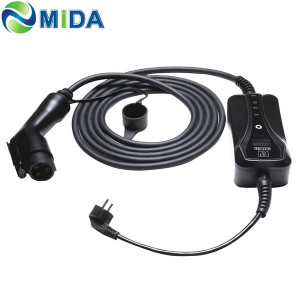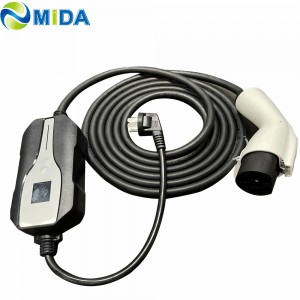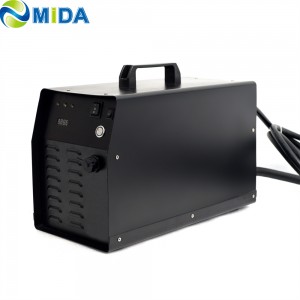32A Portable EV Charger Type 1 current adjustable level 2 electric vehicle charging cable
There are many different types of portable EV chargers on the market, each with its own unique features and benefits. Some are designed for specific models of electric vehicles, while others are more versatile and can be used in a variety of vehicles. To choose the best portable EV charger for your needs, it's important to consider your driving habits, your car's battery capacity, and your budget.
When shopping for a portable EV charger, it's best to do your research and read reviews from other EV owners. This can help you determine which makes and models are the most reliable, durable and effective, and can provide insight into their ease of use and how they perform in different charging scenarios.
Ultimately, a portable EV charger is a must-have accessory for any EV owner who wants to enjoy the convenience and flexibility of on-the-go charging. With its portability, ease of use and fast charging capabilities, it's the perfect solution for drivers looking to keep their car fully charged and ready to go. So if you're looking for a reliable and efficient way to charge your EV on the go, be sure to check out the newest portable EV chargers on the market today!
| EV Charging Box | IEC 62752 , IEC 61851 Standard |
| Power Plug | Type 1 /Type 2 |
| Rate Current | 6A ,8A ,10A ,13A(3Pin UK plug) 3.2KW |
| Rate Current | 6A ,8A ,10A ,13A,16A (EU Schuko plug) 3.6KW |
| Rate Current | 10A ,16A ,20A ,24A,32A (Blue 3pin CEE plug) 7.2KW |
| Input Voltage | 220V/50Hz |
| Waterproof Rating | IP67 |
| Operating Temperature | -25°C ~ +55°C |
| Storage Temperature | -40°C ~ +80°C |
| LCD Display | Temperature, Charging Time, Actual Current, Actual Voltage, Actual Charging Power
Delay Time |
| New Function | Delayed Charging (1~12)+ Current Switching |
| Control Box Dimensions | 220mm (L) X 100mm (W) X 56mm (H) |
| Cable Length | 5 Meter |
| Certification | TUV,CE ,UKCA,FCC Certificate |
| Protection | 1.Leakage Current Protection 2. Over Current Protection
3.Over Voltage Protection 4. Under Voltage Protection 5.Over Temperature Protection 6. Low Temperature Protection 7.Short Circuit Protection 8. Surge Protection 9.Overload Protection (self-checking recover) |

